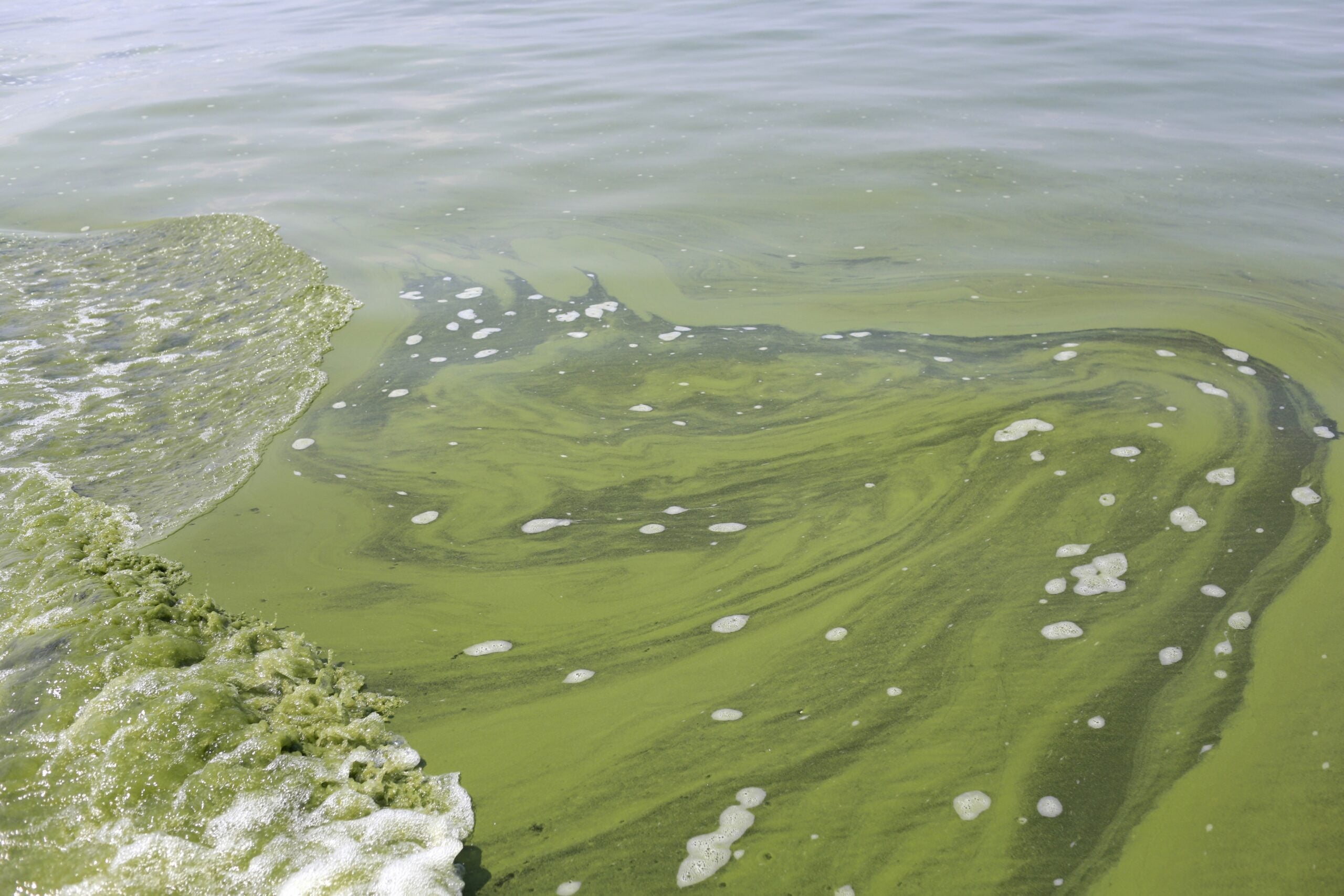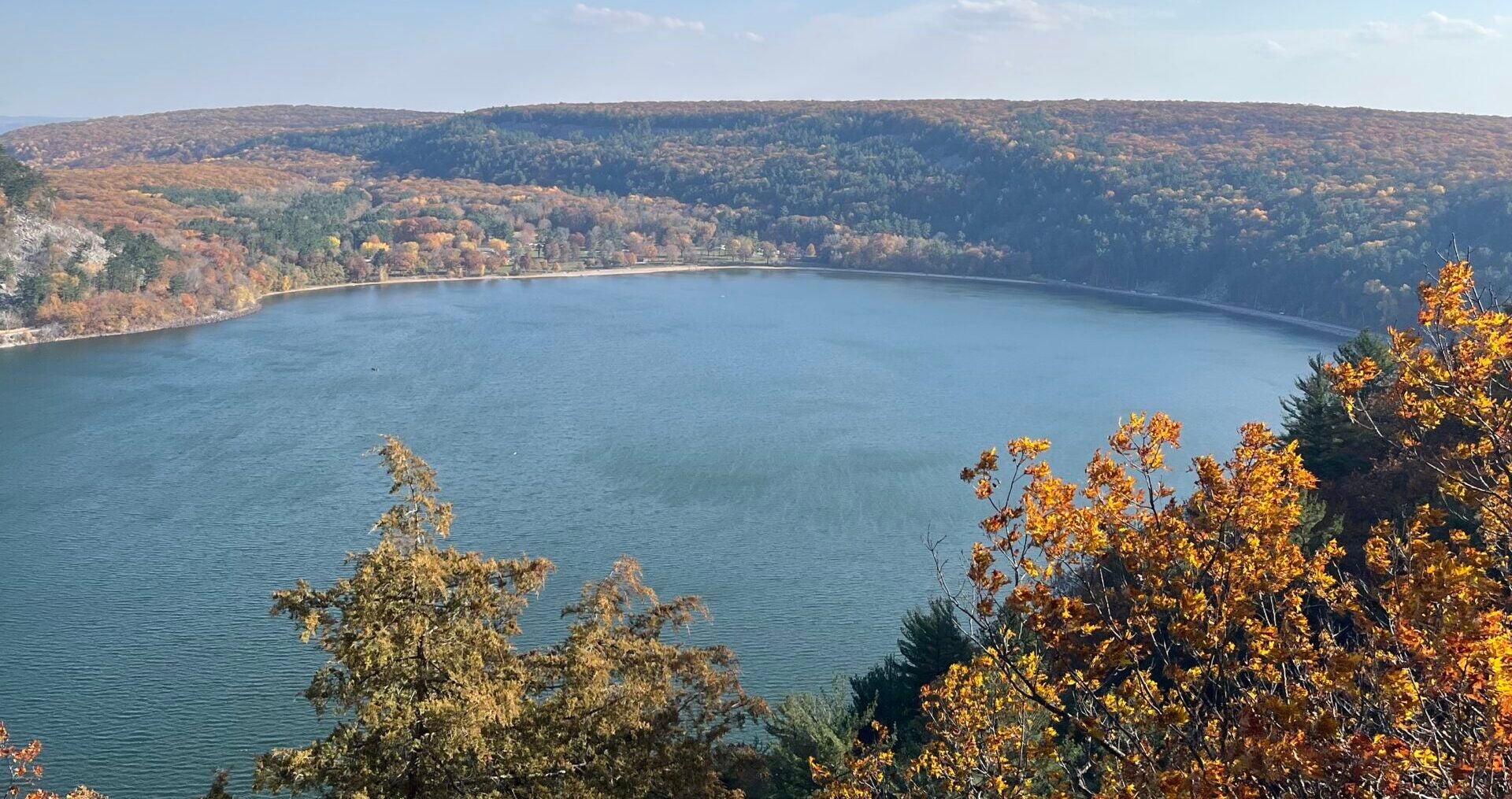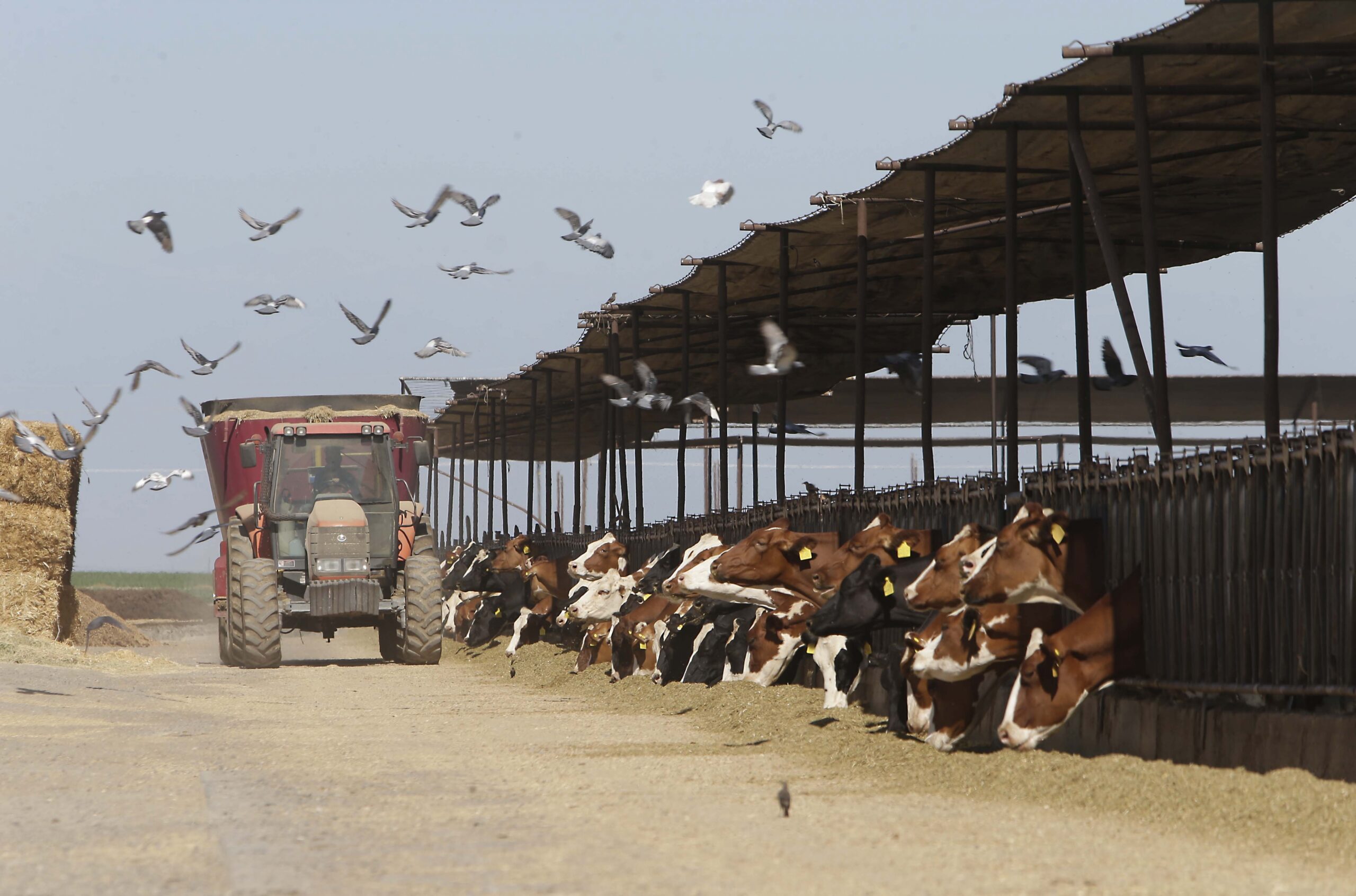The policy-setting board for the Wisconsin Department of Natural Resources unanimously approved changes Wednesday to a policy that aims to protect the health of waterways, despite concerns from industry and municipal groups.
The Wisconsin Department of Natural Resources changed its antidegradation policy for surface waters under a new rule. The policy oversees discharges from large livestock farms, industrial and municipal facilities under wastewater permits.
Adrian Stocks, the agency’s water quality bureau director, told the Natural Resources Board on Wednesday the new changes will affect when facilities plan new or increased releases of pollutants into rivers, lakes and streams.
News with a little more humanity
WPR’s “Wisconsin Today” newsletter keeps you connected to the state you love without feeling overwhelmed. No paywall. No agenda. No corporate filter.
“This is an important rule for protecting our water quality and preserving the condition that it’s in right now,” Stocks said.
The changes are being made to bring the state in line with requirements enacted by the U.S. Environmental Protection Agency in 2015. As part of that, the changes limit who may be able to go through a streamlined review process. That means the DNR could only approve a new or increased discharge that would significantly lower water quality when a review of alternatives shows it’s necessary to support important social or economic development. It would also require permit holders to obtain treatment to reduce negative effects to water quality.
The state’s largest business lobby Wisconsin Manufacturers and Commerce, or WMC, had previously threatened legal action against the DNR if it didn’t address concerns over the cost of the changes. The group was among a coalition of industry and farm groups that argued the changes would cost nearly $56.7 million for businesses and taxpayers to comply in the first two years. Under the REINS Act, agency regulations require legislative approval if they cost more than $10 million over any two-year period.
The DNR made adjustments to clarify that large farms known as concentrated animal feeding operations, or CAFOs, already meet antidegradation policy requirements. The agency also specified that low-cost options for pollution reduction will be prioritized under the changes, and it addressed concerns about expenses related to project delays.
Craig Summerfield, director of environmental and energy policy for WMC, said in a statement that it is reviewing the agency’s latest changes.
“However, it appears the rule will still make it more difficult and expensive for affected Wisconsin businesses — both large and small — to obtain wastewater discharge permits,” Summerfield said. “These permits are necessary for Wisconsin companies to produce the affordable products depended on by consumers, including paper, steel, cheese, milk, canned goods and many other products.”
Summerfield said the rule adds more red tape at a time when Wisconsin manufacturers need relief from “job-killing regulations by the U.S. EPA.”
The DNR has said one or two industrial facilities that are small businesses may need to conduct an alternatives analysis, adding that it’s unable to exempt them from state and federal regulations. The agency also disagrees with claims over the cost of the changes. The DNR has estimated the economic impact of the proposed rule would max out at roughly $2.5 million over any two-year span.
Industry and farm groups argue the vast majority of Wisconsin waterways — 82 percent — are healthy. Environmental groups stressed the changes are necessary to comply with the Clean Water Act and ensure high quality waters aren’t degraded.
“I think we’ve learned the hard way that an ounce of prevention is worth a pound of cure,” said Evan Feinauer, staff attorney for Clean Wisconsin. “It’s a lot easier to safeguard our high quality waters and all the uses that they provide — swimming and fishing and all that — than it is to try to come back later and fix them up after they’ve been impaired or to live with polluted water.”
The agency has said the changes will address issues raised in a petition submitted to the EPA that called for removing the state’s wastewater permitting authority. Midwest Environmental Advocates, an environmental law center, filed that petition on behalf of 16 residents in 2015 to correct deficiencies in the state’s wastewater permit program.
The policy aims to prevent increasing concentrations or levels of pollutants like phosphorus or chloride in waters that are already impaired. The changes deem that a discharge would significantly lower water quality if it goes beyond 10 percent of the waterway’s capacity to absorb a pollutant before it fails to meet water quality standards. That’s down from roughly a third under existing regulations.
Tony Wilkin Gibart, executive director of Midwest Environmental Advocates, said the existing policy is less protective.
“If we were going to make a purchase that was going to use up to a third of our resources in our bank account, we’d probably take a closer look and say, ‘Can we get the same thing with less expense or do we really need this purchase?’” Wilkin Gibart said. “If that’s the kind of prudence that we would use with something as mundane as a purchase, it’s certainly the kind of prudence we should use with something as valuable as the state’s waters.”
The rule is still subject to approval from lawmakers and Gov. Tony Evers before it can take effect.
Wisconsin Public Radio, © Copyright 2025, Board of Regents of the University of Wisconsin System and Wisconsin Educational Communications Board.







